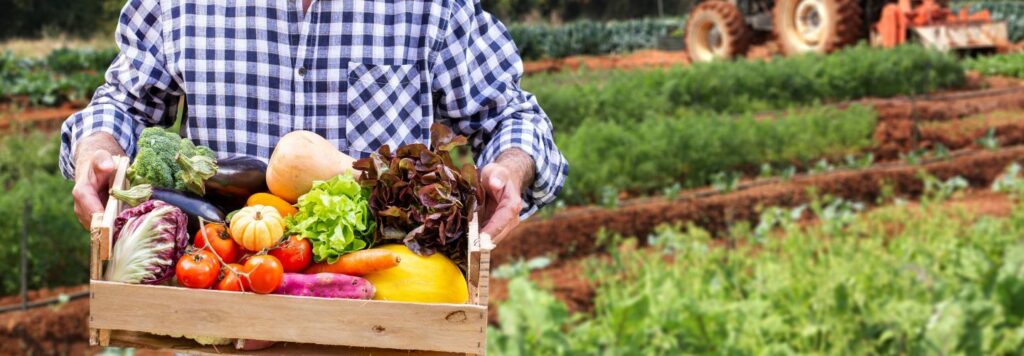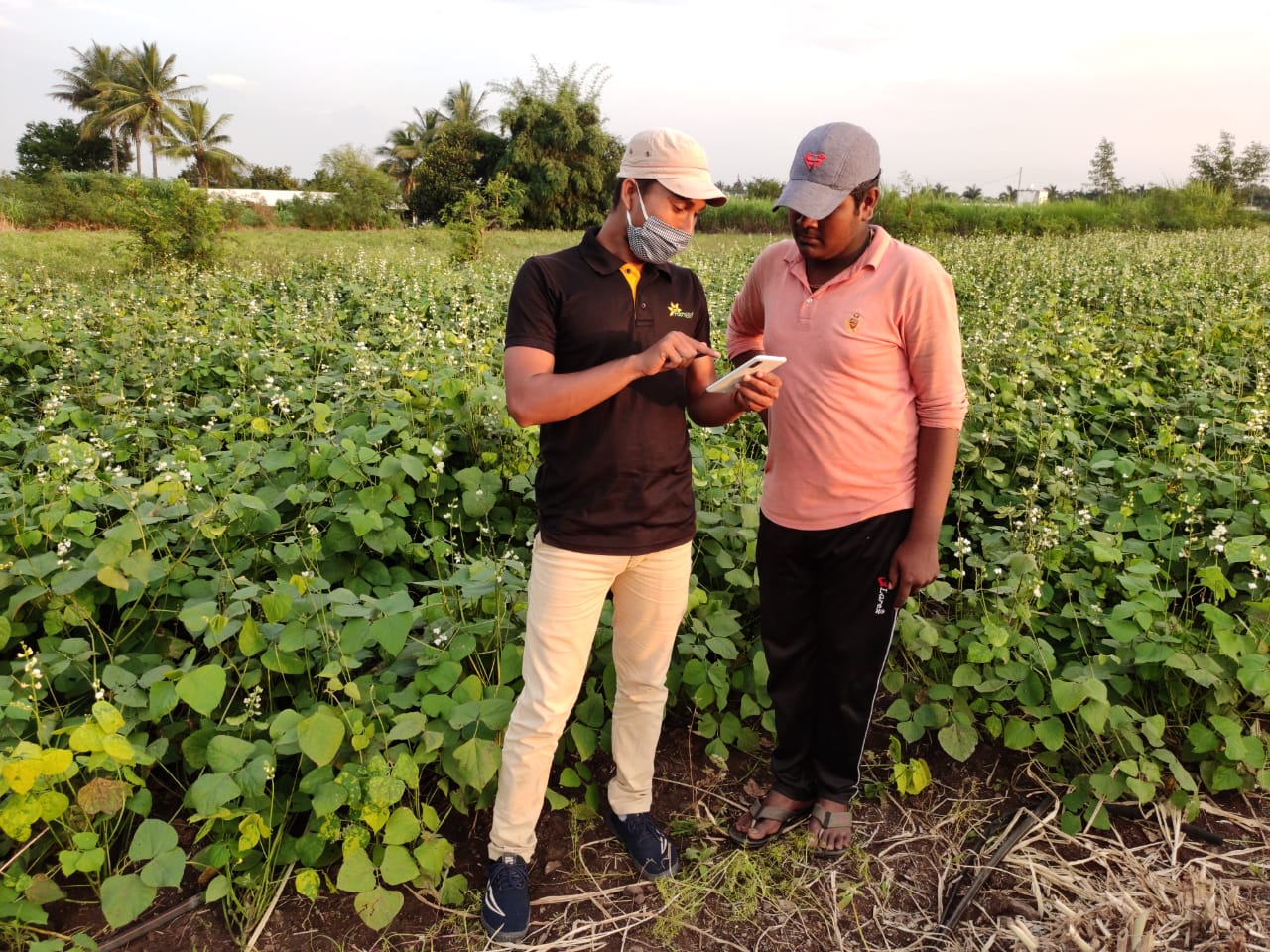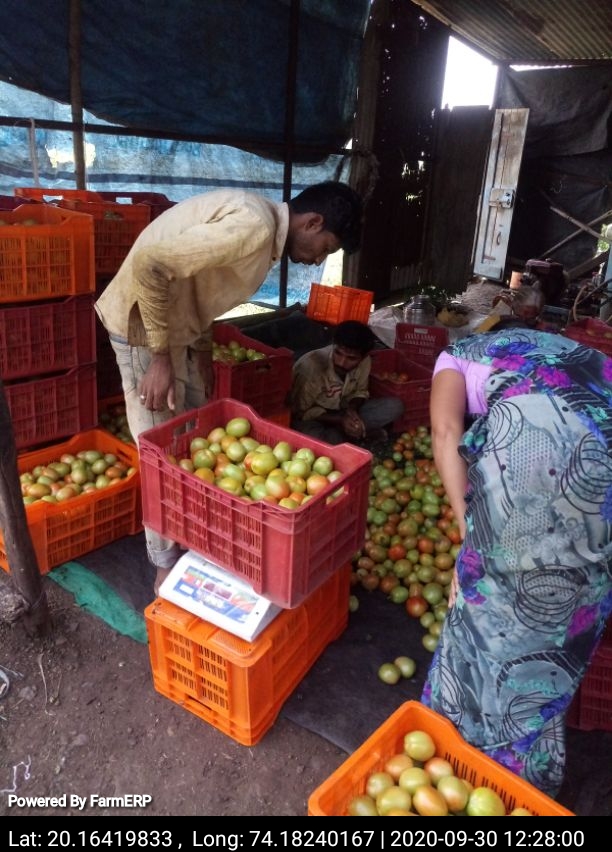Uberization of Agriculture – A Game-Changing Project for Smallholder Vegetable Growers

Growing extreme weather events and their impact on crop quality are severely affecting the economic and agricultural potential of smallholder farmers. FarmERP is taking major steps towards uberizing agriculture to make smallholder vegetable growers more independent and efficient through relevant technology interventions.
FarmERP’s Uberization project aims to assist smallholders to effectively enhance their quality standards. This will help the vegetable growers form better and faster connections with buyers. Improved farmer-buyer linkages will also benefit both FPCs and buyers by meeting demand and supply at both ends.
Introduction
Modern agriculture sees the use of artificial intelligence, blockchain, machine learning, advanced sensors, and so many aspects that were unheard of a few decades ago. The integration of technology with daily agronomic activities may not be the reality across the world today. But, one step at a time, AgriTech players like FarmERP are working towards enabling a change in the agricultural world.
FarmERP has been actively working for ‘Uberization in Agriculture’ that aims at making farming more predictable and profitable for the smallholder farmers. This project focuses on bringing smallholder vegetable growers in Maharashtra and buyers together through a single platform.
Through its next-generation farm management system, FarmERP helps farmers and agribusinesses improve farming by the virtues of sustainability, climate-resilience, and food safety. FarmERP also helps in mapping and tracing the entire agricultural supply chain – from pre-sowing to harvesting, procurement, sales, to traceability.
Challenge
- The reality of farming today is a lot of toil and tribulation. Predicting accurate crop outcomes is one of the major challenges in precision agriculture.
- Short crop durations are compelling growers to have an accurate execution plan with resource availability to reduce yield losses and boost productivity.
- Inadequate farm management expertise and just in time advice are leading to huge losses for smallholder vegetable growers.
- Lack of human capital, limited access to technology, infrastructure, and markets as well as inadequate financial expertise are drastically disrupting agricultural yields.
- The pandemic highlighted the importance of technology in agriculture. However, the lack of prevalence of AgriTech tools restricted smallholder farmers from leveraging their full potential.
Approach
Through the Uberization Project, FarmERP worked towards making agriculture predictable by determining the right production value, analyzing data correctly, and establishing market linkages. FarmERP’s farm management system assisted in mitigating uncertainty and enhancing productivity for smallholders by tackling issues of climate change, use of fertilizers, nutrition, etc.
- The project helped optimize grower activity through a task calendar and manage their expenses while maintaining a high quality of produce.
- FarmERP selected two key vegetable growing areas in Maharashtra, India – Otur and Khadak Malegaon for this project. The project covers 24 organic and conventional vegetable crops.
- FarmERP improved the accuracy of yield estimations, cost, and financial analysis to ultimately uplift the socio-economic conditions of smallholders with better decision-making.
- FarmERP offered vegetable growers end-to-end services that included production practices, climate-smart advisory, quality control, harvesting, and many other areas of farming.
- With Artificial Intelligence (AI) and advanced sensors, FarmERP helped farmers optimize their irrigation system using its weather prediction and climate advisory.
- Field officers and farmers used mobile applications to capture all pertinent farm data easily. Procurement by buyers with labels pasted at farmgate also helped in ensuring complete traceability.
- With satellite imagery analysis, FarmERP helped in improving farm management for various factors impacting nutrition such as vegetation, biotic stress, abiotic stress.
- By educating farmers through Digital Advisory Services (DAS), FarmERP enabled farmers to practice sustainable farming throughout the crop production cycle.
- FarmERP contributed to climate-resilient farming by encouraging collective marketing that reduces the emission of distributions in the supply chain. Growers also received support to accurately track expenses and budget for their crop cycle.

Benefits
‘Uberization of Agriculture’ improves profits as well as self-reliance in business for smallholder farmers, which ultimately leads to improving their socioeconomic status in the industry. Through its AgriTech expertise, FarmERP has made technologies such as AI and data analytics more farmer-friendly to boost agricultural productivity.
FarmERP helped the farmers and agribusinesses in the following ways –
- FarmERP helped them with features such as geo-tagging and administration of grower plots through basic information as well as pictures acquired through satellite imagery tools.
- Through the implementation of the project ‘Uberization of Agriculture’, FarmERP was partially successful in making agriculture more predictable for smallholder vegetable farmers.
- With the continual improvements in the accuracy of the model, FarmERP aims to reach higher levels of precision through AI-driven agriculture.
- Buyers have been enabled to track the quality and quantity of produce by providing real-time crop data via the FarmERP app. This has helped buyers analyze the farm produce and decide the best buying rates well in advance.
- By labeling each product before sending it to the packhouse, FarmERP has made the traceability of finished products a lot easier. This has immensely helped agribusinesses, especially in the case of recalls.
- As the entire supply chain, starting from procurement to packing and sales was digitized, smallholder farmers could achieve great control over their operations.
- Farmers are increasingly offered the opportunity to employ intelligent farming practices with the help of efficient technologies. These digital transformations are improving farm management and significantly enhancing profitability and stability on the field.
- By aiding innovations in various technologies, FarmERP also helped in establishing and managing smart information systems. This assisted farmers in efficiently carrying out agriculture practices on-site as well as off it.

